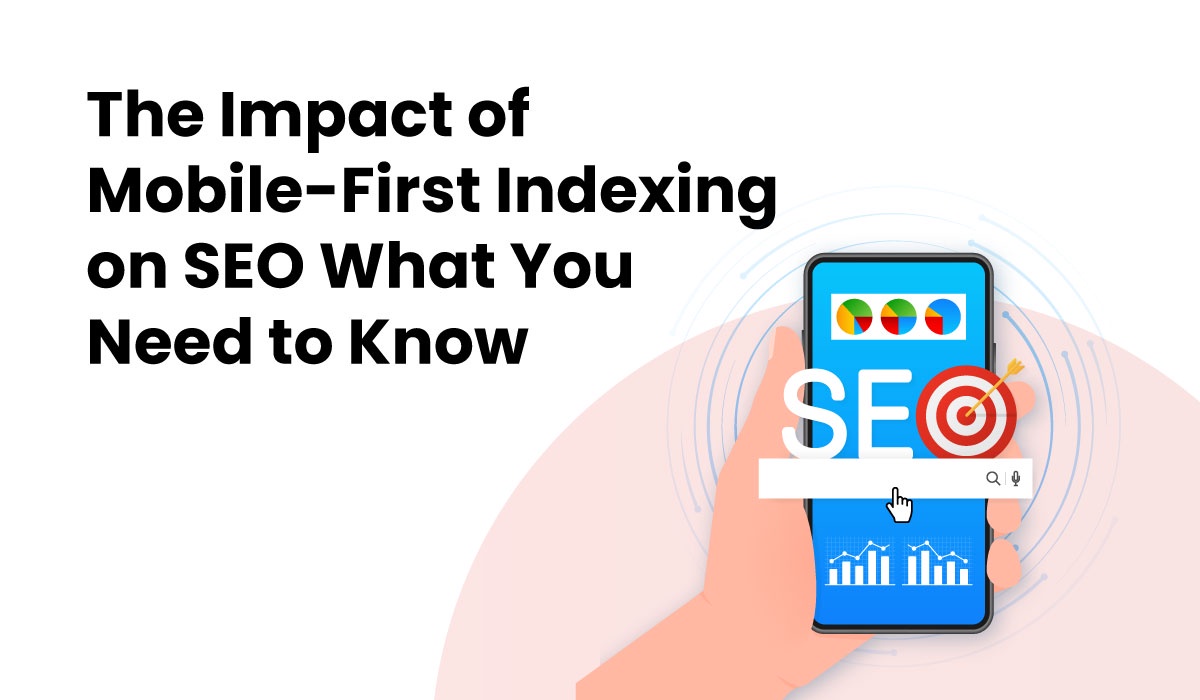In the ever-evolving landscape of search engine optimization (SEO), staying ahead of the curve is crucial for businesses looking to maintain a strong online presence. One of the seismic shifts in recent years has been the transition to mobile-first indexing by search engines. This shift has profound implications for how websites are ranked and, consequently, how businesses strategize their SEO efforts.
In this blog post, we will explore the concept of mobile-first indexing, its impact on SEO, and what businesses need to know to stay on top of the game.
Understanding Mobile-First Indexing:
Mobile-first indexing is a significant departure from the traditional approach to indexing and ranking websites. Historically, search engines like Google primarily used the desktop version of a website's content to determine its relevance and rank in search results. However, with the increasing dominance of mobile devices in internet usage, search engines recognized the need to adapt.
Mobile-first indexing signifies a shift in priority. Instead of relying on the desktop version of a site, search engines now prioritize the mobile version for indexing and ranking. This change is in response to the fact that a majority of users access the internet through mobile devices, prompting search engines to prioritize content that is optimized for these smaller screens and different user experiences, opined SEO experts at Webomindapps Toronto.
The Impact on SEO:
-
Mobile-Friendly Content is Non-Negotiable: The mobile-first index means that having a mobile-friendly website is no longer optional; it's a necessity. Google and other search engines give preference to websites that offer a seamless and responsive experience across devices. Websites that fail to optimize for mobile may see a decline in rankings, ultimately affecting their visibility in search results.
-
Page Loading Speed Matters More Than Ever: Mobile users are often on the go and have limited patience for slow-loading pages. Mobile-first indexing considers page loading speed as a critical ranking factor. Websites that prioritize quick loading times on mobile devices are more likely to rank higher in search results. Optimizing images, reducing server response times, and leveraging browser caching are some strategies to enhance page loading speed.
-
Structured Data and Metadata Optimization: Search engines rely on structured data to understand the content and context of a webpage. With mobile-first indexing, ensuring that structured data is present and correctly implemented on the mobile version of a site is crucial. Additionally, optimizing metadata, including titles and meta descriptions, for mobile users can significantly impact click-through rates from search results.
-
Quality Content on Mobile: The shift to mobile-first indexing emphasizes the importance of delivering high-quality, relevant content on the mobile version of a website. Content that is easily readable, concise, and engaging on smaller screens contributes to a positive user experience, which, in turn, influences search engine rankings.
-
Mobile-Friendly Design and User Experience: Beyond content, the overall design and user experience of a mobile site play a pivotal role in SEO. Mobile-friendly design involves creating a layout that is visually appealing, easy to navigate, and intuitive for users on various mobile devices. Search engines reward sites that prioritize a positive user experience on mobile.
Best Practices for Mobile-First SEO:
-
Responsive Design: Implement a responsive web design that adapts to different screen sizes and provides a consistent user experience across devices. This not only caters to mobile-first indexing but also aligns with user expectations for a seamless transition between desktop and mobile.
-
Optimize Images and Multimedia: Compress and optimize images and multimedia elements to ensure quick loading times on mobile devices. This not only improves user experience but also aligns with search engine preferences for fast-loading mobile pages.
-
Prioritize Mobile Page Speed: Invest in optimizing mobile page speed by leveraging tools like Google PageSpeed Insights. Address issues such as render-blocking resources, browser caching, and server response times to enhance the overall performance of your mobile site.
-
Mobile-Friendly Structured Data: Ensure that structured data is implemented and consistent across both desktop and mobile versions of your site. This helps search engines better understand and index the content on your pages.
-
User-Focused Content: Craft content with the mobile user in mind. Use concise and scannable formats, break up content into digestible sections, and prioritize readability on smaller screens. This not only enhances SEO but also improves the user experience.
-
Mobile SEO Audits: Regularly conduct mobile SEO audits to identify and address any issues that may affect your site's performance on mobile devices. This includes checking for mobile-specific errors, ensuring proper redirects, and verifying the consistency of content between desktop and mobile versions.
Conclusion:
Mobile-first indexing has undeniably transformed the SEO landscape, requiring businesses to adapt their strategies to meet the evolving demands of search engines and users. Embracing mobile optimization not only improves search engine rankings but also enhances the overall user experience, contributing to increased engagement and conversions. By staying informed about the impact of mobile-first indexing and implementing best practices, businesses can position themselves for success in an increasingly mobile-centric digital landscape. As the mobile revolution continues, businesses that prioritize mobile SEO will undoubtedly enjoy a competitive edge in the online realm.


No comments yet